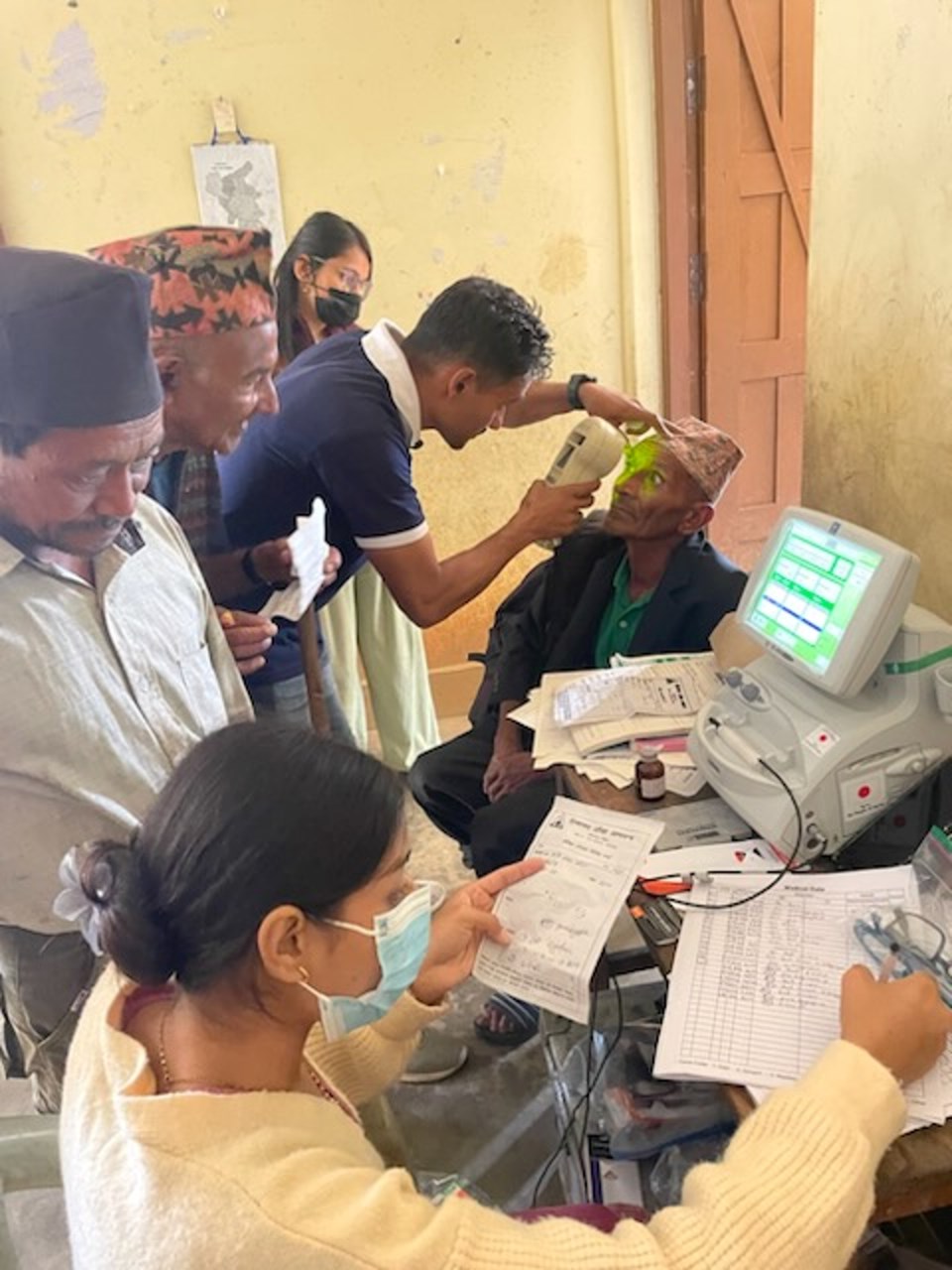It was a goodwill mission with a vision-gifting focus.
But the insight imparted on one local humanitarian may have been equally meaningful.
Serving in a volunteer administrative role with the Innovative Communities.org Foundation for the past five years, Miltonian Sheila Hainsworth was recently part of a near month-long trip to remote villages of Nepal.
One such community served as the grounds for numerous life-changing transformations – the highlight of an eye camp that drew over 550 residents from across the region.
Among those arriving by foot, motorcycle or bus, 40 individuals received cataract surgery. Recalling those beneficiaries with an unmistakable joy, Hainsworth noted that the language barrier couldn’t impede the villagers immense gratitude.
“One woman couldn’t speak English so she just kept putting her hand over her eye and pulling it away, conveying how thrilled she was (to see clearly),” recalled the longtime Miltonian, a strong supporter of the local Special Olympics and hospital who collected roughly 300 pairs of reading and prescription glasses for her trip to Nepal. “There was one man with a green patch over his eye that he’d lost when he was 17 to a bear (attack), so with the cataract for the last two years he was essentially blind.
“He was thrilled and through his grandson he told us he was happy to go home and see his wife.”

Adding a little good humour to the camp’s celebratory air was the doctor’s post-surgery instructions, which included a pause on raksi, Nepal’s common home-brewed moonshine.
Said Hainsworth, “It was funny because he was talking away and you could hear them say raksi and they were all giggling because they weren’t allowed to drink that for a while.”
“These people work forever. They don’t retire and that’s why their eyesight is so important to them, not just for the benefit of seeing their loved ones or just life.”
The eye camp was just half of ICO’s latest voyage to Nepal, which also included an in-depth followup on a number of previous projects.
Among them was a three-kilometre long irrigation canal that’s stood the test of time, yielding another strong crop of rice this past year.
Hainsworth and her team also met with encouraging feedback from students they’ve supported and school computer labs they’ve set up, as well as villagers’ gratitude regarding the induction stoves partially funded by ICO.
“They were so excited to show us how they work,” said Hainsworth. “They were so thankful.”
That was a common theme during the group’s village visits, which for much of the time included ‘home stays’ – which offered newfound appreciation for the every-day comforts normally taken for granted.
Like many villagers, Hainsworth’s hosts had accommodations politely referred to as basic – with no flushing toilets or showers. She described her bed as having not so much a mattress as just “something to sleep on.”
“We live privileged lives here… it’s an eye opener,” she said. “But they don’t know what they’re missing out on. They were always very friendly and always seemed like they’re happy.”
Case in point was the evening singing and dancing that would last for hours prior to meal time, with Hainsworth and her fellow humanitarians often pulled into the celebration.
The Milton woman was even granted the honour of playing the drum during one such occasion.
“They were so thrilled that you were up here… you just go for it. I’ve never been so immersed into the culture (of a country). I got to see what it was really like to live in Nepal.”
Of course those joyous moments follow days of painstaking work for the young and old alike, including carrying massive bundles of grass on their backs to bring to their buffalo, cow or goat.
And with no farming equipment, cutting, thrashing and drying the rice – among other tasks – is all done by hand.
“It’s all physical labour,” said Hainsworth. “The reading glasses are to help them with fine motor tasks; it’s not like they’re sitting around reading a book like you’d see here.
“And the food is tasty but it’s the same thing all the time… more for nourishment. It’s a very hard life.”
Visit innovativecommunities.org for more on the volunteer-based organization and its many projects.
